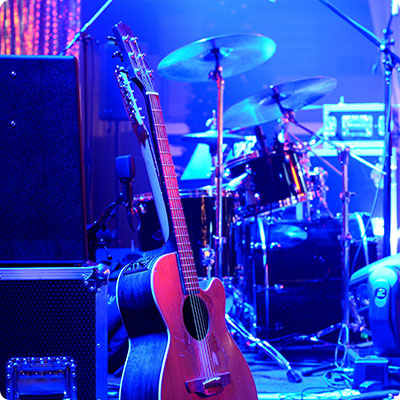Family
Usually large in number, the family plays a major role in all the ethnic groups that make up Suriname. In the more agricultural areas, traditional Hindustani families continue to arrange marriages by choosing a partner for their children. At the same time, even if many of the partners have the same origins, mixed marriages still take place, particularly in Paramaribo, suggesting that while traditional family structures persist within the various ethnic groups, they are tending to modernize. As far as marriage is concerned, while living together without being married is quite common, the phenomenon remains very little accepted among traditional Hindustanis, for whom the bride must be a virgin. As for Caribbean families, households are generally run by women, and children of different fathers are accepted. Women tend to be monogamous, and it's more common for men to have several partners: having a mistress(buitenvrouw) is in fact tolerated and hardly hidden.
Education
While education is an important issue for all communities in Suriname, access to it remains highly unequal. Schooling is compulsory from age 6 to 12, and 85% of children attend school until they are 17. However, more than 40% of students need seven years or more to complete a six-year cycle, and only 50% pass the final exam. Although 6.5% of GDP and 15% of the government's recurrent expenditure is devoted to education, the school system is in dire need of modernization: teaching staff remain poorly trained, schools and learning resources are not all of good quality, and examination and selection systems are obsolete. Despite this failing system, the literacy rate in 2021 was 95%.
A difficult social situation
Thanks to Dutch financial aid, supplemented by national budget spending, Suriname has enjoyed strong economic growth in recent years. However, this growth has also had adverse effects on development: inequalities have increased in a society that was already vulnerable. Unemployment, which had been falling sharply (from 11% in 2007 to 5.5% in 2013), soared during the Covid period to reach 11.2% in 2021 (the tourism sector was hit hard and inflation is rising). Since then, it seems to have fallen slightly, and will be around 10% in 2023. That same year, Suriname ranked 99th out of 169 countries on the United Nations' Human Development Index (HDI), an improvement on previous years.
As for social protection indicators, despite funding from the Surinamese state, they are comparable to those in force in the Caribbean. While the situation has improved significantly in 40 years - in 2018, average life expectancy was almost 73 years (versus 64.8 years in 1980) and the infant mortality rate was estimated at 24 per 1,000 births (versus 46.6 in 1980) - 30% of the population continues to live without health coverage. To counter this situation, the Ministry of Health has drawn up a general health insurance plan, which is still under discussion. The University Hospital in Paramaribo provides access to specialized care, and health posts have been set up inland, which does nothing to slow down the activity of healers and shamans.
Among the main health problems, access to water remains a priority. Mercury pollution from small-scale gold mining in the interior of the country, the excessive use of pesticides on farmland in coastal rural areas and the widespread practice of discharging wastewater into streets and canals pose a serious threat to the quality of drinking water. Housing is another major issue: some neighborhoods are comparable to shanty towns in Latin America, with populations living in illegal dwellings on land that does not belong to them. In these areas, there is no running water, sanitation or electricity, and the lack of employment opportunities leads to a high crime rate. Nearly a quarter of the population lives in housing inadequate for a decent life.
Place of women and homosexuals
The life expectancy of a Surinamese woman is 75.2 years, and she gives birth to an average of 1.9 children (2018). The social status of women varies from community to community: in the rather matriarchal Creole society, women play a significant social role in the home, while in the strongly patriarchal Hindustani community, they play a more secondary role. In traditional black-maroon societies, the wife has a very important role: she is the only one with access to household resources, owns several houses built by her husband, and it is she who looks after the children, plants and harvests. Although polygamy among men is tolerated, it is less and less practised: a man can certainly have several wives, but he must also be able to support them all, i.e. house them, supply them with wood, medicinal herbs, etc. Generally speaking, women in Suriname are economically independent within the home, but when it comes to society as a whole, their status is far from equal to that of men.
Openhomosexuality remains a taboo in Suriname, especially for men. Female homosexuality is more tolerated, as friendships and intimate relationships between women - "matis" - have long existed among Afro-Surinamese. There is, however, a small male homosexual community, mainly in Paramaribo. Homosexuals clearly face greater legal challenges than heterosexuals in Suriname: while homosexuality is legal, same-sex marriages are not recognized, and sexual majority is later for homosexuals than for heterosexuals (18 versus 16, according to article 302 of the penal code, although it is rarely applied). Nevertheless, Suriname is one of the few Latin American countries to have organized a "pride march" through the streets of Paramaribo since 2011.
















